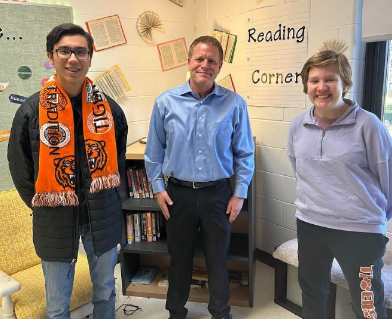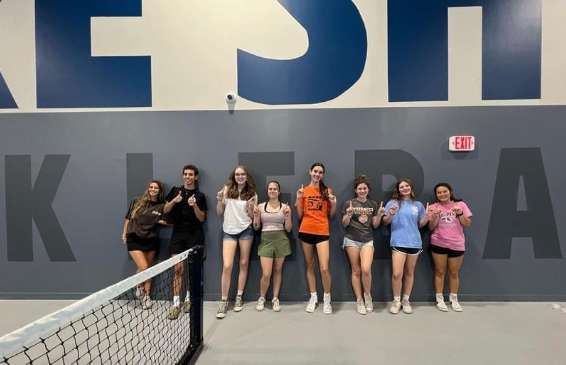School-Issued Computers Increasing Student Productivity
October 21, 2019
When the school bell rang as little as 20 years ago, students would pull out a pencil and notebooks to follow along during class. Nowadays, more students are whipping out computers to learn and increasing productivity at school.
In recent years, school districts have begun to give out laptops, tablets, and other forms of technology to students. With this technology, students are ensured the ability to work on online assignments and have internet access from anywhere. The growing popularity of school districts, specifically CUSD 200 in suburban Chicago, to issue computers to students allows students to be more productive in completing schoolwork.
Students becoming more productive due to having school-issued computers stems from the fact that students are actually receiving computers to work with in the first place. Tara García Mathewson discussed this trend in an article for the Hechinger Report, a news site devoted to news about education.
“More than twice as many [surveyed] principals in 2017 said students in their schools were assigned some type of mobile device, like a laptop or tablet, than in 2015,” said Mathewson. This trend is becoming more local, as well. District 200 is beginning to give chromebooks to students to aid in their learning experience. While students can still work on computers that are kept at school, having a computer at all times is helping them become more productive.
Wheaton Warrenville South senior Jackson Dieden elaborated on the productivity that comes from these computers, saying, “Using my computer [during the school day] is perfect. I’m able to sit back, do my work, and nothing is going to stop me.”
Because of the convenience that school-issued computers also provide, students are able to be more productive in their academic lives. 82% of surveyed Wheaton Warrenville South students said that having a school-issued computer is convenient for them. By having a computer with them all day, students can simply take out their own computer whenever they have to work on something in class or do other online work.
When talking about online work in classes, South senior Ben Gorski said, “There are times during school where using a nice, portable computer would be way easier than using your cell phone. I think it would be very convenient at times.”
By being able to access their computer at any point during the school day, students are able to complete work in a more efficient, complete, and organized manner.
A large part of why District 200 is handing out chromebooks is because technology can provide new and better ways of learning. As part of this new technological initiative, District 200 is employing a strategy this year called Blended learning. Blended learning is a system where on designated days, students do not attend their ‘blended’ class and instead go to work independently somewhere else in the building, such as the library or commons. Students are able to take full control of their workload and complete assignments at their own pace.
“[The computers] make it easy to work on homework on blended days,” Dieden said on having a computer to use during the school day. Being able to have a computer on days with independent learning allows students to prioritize certain assignments and work at their own pace to maximize their productivity.
Not only do school-issued computers help students outside of the classroom in times like blended learning days, but they can help students in the actual classroom, as well.
“High schoolers assigned a laptop or a Chromebook were more likely to take notes in class, do internet research, create documents to share, collaborate with their peers on projects, check their grades and get reminders about tests or homework due dates,” said Mathewson. Because students are more likely to take steps to excel in class with computers, school districts are growing more inclined to give out technology to students because of the potential for academic growth.
While many students have been given computers at Wheaton Warrenville South, 54% of surveyed students said they have not received a computer from the district. Giving out more computers to these students may also have the added benefit of helping out kids without the access of technology in their homes to complete schoolwork online.
When discussing the impact of school-issued computers on those who don’t have technology in their home principal Kelli Hoffman of Topeka, Kansas, said in an interview with NPR, “It has opened up a huge educational resource to our kids who may not have access otherwise.” By allowing students without technological access to use school-issued computers, school districts are giving every student the best chance of success and productivity. If this trend continues, one of these days computers will become the new notebooks and pencils of the early 2000s.







